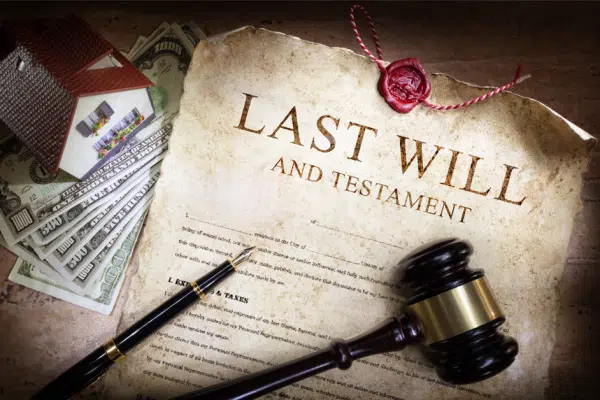The following is the third of a four-part series written by Chris McKenzie. (See Part 1 here and Part 2 here.)
Eleven
The need to avoid referring to a settlor’s letter of wishes in a trust instrument
Only rarely would it be advisable to include a reference to the settlor’s letter or memorandum of wishes in a trust instrument.
In the vast majority of cases letters of wishes are merely precatory, i.e. only statements of wishes rather than a legally binding documents, and so referring to them (and thus arguably incorporating their provisions) within the terms of trusts may create uncertainty as to such documents’ status.
Furthermore referring to a letter of wishes in a trust instruments could make it difficult to argue that such a document’s terms should be treated as confidential and cannot be disclosed to beneficiaries as a matter of course.
It is also imperative that very careful consideration should be given to terminology which is included in letters of wishes. This should be done with a view to avoiding the risk that the terms of a letter of wishes will be considered to be legally binding and that provisions in them embellish on or even override the legally binding terms of the trust instrument. Words such as ‘shall’ and ‘must’ should definitely be avoided: it is usually advisable to replace such terminology with expressions such as ‘I should like you to consider…’ and to include within these documents a statement making it abundantly clear that the settlor appreciates that the terms of the letter of wishes are not legally binding and that the trustee, and the trustee alone, has the relevant powers.
Twelve
Defining ‘charitable’ purposes in trust instruments
Particularly in older trust deeds one sometimes comes across definitions of ‘charitable’ to the effect this term encompasses that which is ‘charitable’ under either BVI law or the laws of another specified jurisdiction (or indeed that which is ‘charitable’ under the laws of any jurisdiction in the world).
A purpose which would be regarded as charitable under the laws of other jurisdictions may well be very different from one which is regarded as charitable as a matter of BVI law. For instance the BVI has no equivalent to the UK’s Recreational Charities Act 1958.
Defining the word charitable in a manner which includes purposes which may not be charitable as a matter of BVI law is problematic since if a trust has purposes which are not exclusively charitable within the meaning of BVI law, in order to be valid the trust will need to qualify as a ‘non-charitable purpose trust’ pursuant to the requirements of section 84A of the Trustee Act. A trust will not so qualify if it does not have an ‘enforcer’ who is a party to the trust instrument (or provides the relevant consent) or if it does not satisfy the other conditions laid down by that section (such as those which require designated trustees and which require the trust instrument to include a mechanism for appointing successor enforcers).
In order to accommodate future changes to the proper law of a trust, it is usually best to define ‘charitable’ purposes in a trust instrument as those which are both (a) exclusively charitable as a matter of BVI law and (b), if the proper law of the trust is changed, exclusively charitable under the laws of the jurisdiction to which the governing law of the trust is changed.
Thirteen
Gifts in wills to the trustees of existing trusts
Testamentary gifts to the trustees of existing lifetime trusts give rise to a number of potential technical difficulties which must be navigated. These difficulties may not be immediately apparent to the draftsperson and may be summarised as follows:
- The terms of the relevant trust will either need to be set out verbatim in the will or else a new will or codicil will need to be executed to reflect any changes to the trust’s terms which have been made after the date on which the will has been executed and before the testator passes away. It is often advisable for the bequest in the will be drafted in such a way as makes it clear that the gift is one to the trustees of the relevant trust on its terms at the time of the will’s execution and for a new will to be executed if the trust’s terms are changed subsequently.
- It is usually prudent to make provision in the will for a scenario in which the relevant trust no longer exists, for instance because it has been revoked or all its assets have been distributed.
- Issues of private international law can give rise to further complications if the donee trust is governed by the laws of a jurisdiction other than those of the jurisdiction (a) in which the testator is domiciled, (b) in accordance with the laws of which the will is to be construed or (c) in which the assets of the estate are situated. Account, in particular, should be taken of the relevant rules relating to perpetuity and remoteness of vesting and of gifts to trustees of (or on) trusts for purposes that would or might fail as non-charitable purpose trusts under any of those other laws.
Fourteen
Naming successor trustees in trust instruments
Most BVI trusts have as their trustees either licensed professional trustees or private trust companies, but some BVI trusts, largely those with connections to the US, have trustees who are individuals.
Whilst it is perfectly in order for a trust instrument to specify who will succeed a sole trustee as trustee of the trust in the event that such a trustee passes away, it is not always appreciated that this will not eliminate the need to obtain a BVI grant of probate or letters of administration in that eventuality. Such a grant is needed, not because the assets belong beneficially to the deceased’s estate (which they will not unless, i.e., the trust is a bare trust), but in order to transfer title to the trust property which comprises shares in the BVI company (or BVI land) to the successor trustee who is named in the trust instrument. This is because the ‘automatic vesting provisions’ in the Trustee Act do not apply to trust assets which comprise shares in BVI companies (or land).
Fifteen
The preparation of wills in circumstances in which the testator’s domicile cannot be established with certainty
Given that the law of the testator’s domicile is of such significance to the formal and essential validity of that person’s will insofar as it disposes of movable property (such as shares in a BVI company), it will invariably be necessary to establish where the testator is domiciled when preparing a will which disposes of such property. This must be done because it is not BVI law, but the law of the domicile, which must be complied with in terms of ensuring that the will is formally and essentially valid.
This matter should not be taken lightly because, as and when the application for a BVI grant of probate is made following the testator’s death, if the testator does not die domiciled in the BVI (and most shareholders of BVI companies will not do so) an affidavit – or affirmation – of foreign law will need to be sworn by a lawyer from the jurisdiction in which that person died domiciled confirming that the will is formally and essentially valid pursuant to that jurisdiction’s laws. Without such an affidavit or affirmation, the probate registry will not issue the grant.
The formal validity of a will involves ensuring that any witnessing requirements have been satisfied and complying with any other formal requirements of the law in question such as any relevant notarisation or registration requirements.
A will will not be essentially (or materially) valid if its terms are overridden by any applicable forced heirship provisions which form part of the law of the deceased’s domicile; the ‘firewall’ provisions in section 83A of the Trustee Act do not apply to testamentary dispositions.
Domicile is not the same as residence or nationality and is determined in accordance with some (less than straightforward) provisions of English common law.
Establishing a testator’s domicile can give rise to difficulties in an escalating number of cases: partly because of the increasing mobility of shareholders of BVI companies, and partly because of the uncertainty relating to the concept of domicile, it is frequently difficult to establish where a person is domiciled.
It can be particularly difficult to ascertain a person’s domicile on the basis that he or she can acquire a ‘domicile of choice’ by the combination of (a) taking up residence in another country and (b) demonstrating a genuine intention to remain there permanently or indefinitely. This intention must be supported by clear evidence of all the circumstances surrounding the individual and his or her way of life. On the other hand a person loses that domicile of choice by either (i) leaving the country in question or (ii) giving up the intention of making it his or her permanent home. In circumstances in which either (i) or (ii) does not apply, the person’s ‘domicile of origin’ revives unless the individual has acquired a new domicile of choice by satisfying both the requirements set out in (a) and (b) above.
Further complications arise because it is the person’s domicile at death that is relevant to determining the will’s formal and essential validity rather than that when executing the will. As a result, matters should be kept under constant review; as and when a testator’s circumstances change materially after his or her will has been executed these issues should be revisited.
In many cases it may be unclear whether the testator is domiciled in one jurisdiction (Narnia) or another (Wakanda) when executing his or her will. To the extent that this is feasible, and sometimes it may not be, it may be prudent to ensure that such a will is both formally and essentially valid under the laws of both Wakanda and those of Narnia so that both possibilities are covered. This will involve obtaining specialist legal advice from lawyers from both jurisdictions before executing the will to ensure that its validity would be upheld. Further advice on these issues should be obtained as and when the testator’s relevant circumstances change.
The fourth in this series will be published during the course of July 2025. It will cover (a) the need to take care when schedules are included in trust instruments, (b) default provisions conferring discretion on trustees, (c) the need for VISTA-compatible memoranda and articles, (d) provisions to the effect that beneficiaries of discretionary trusts are entitled to specified fractions of the trust fund and (e) the inadvisability of holding the shares in a PTC in the name of the settlor.


